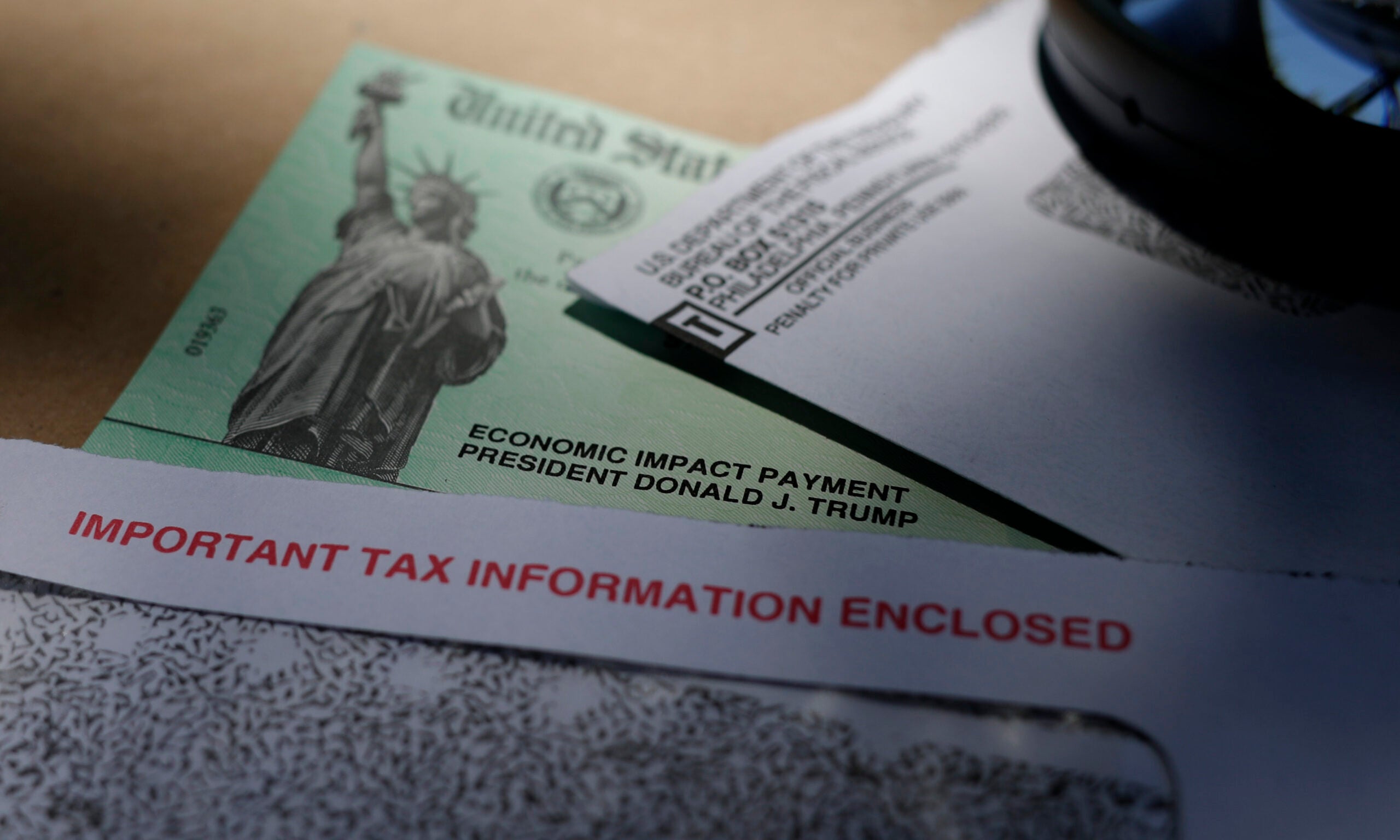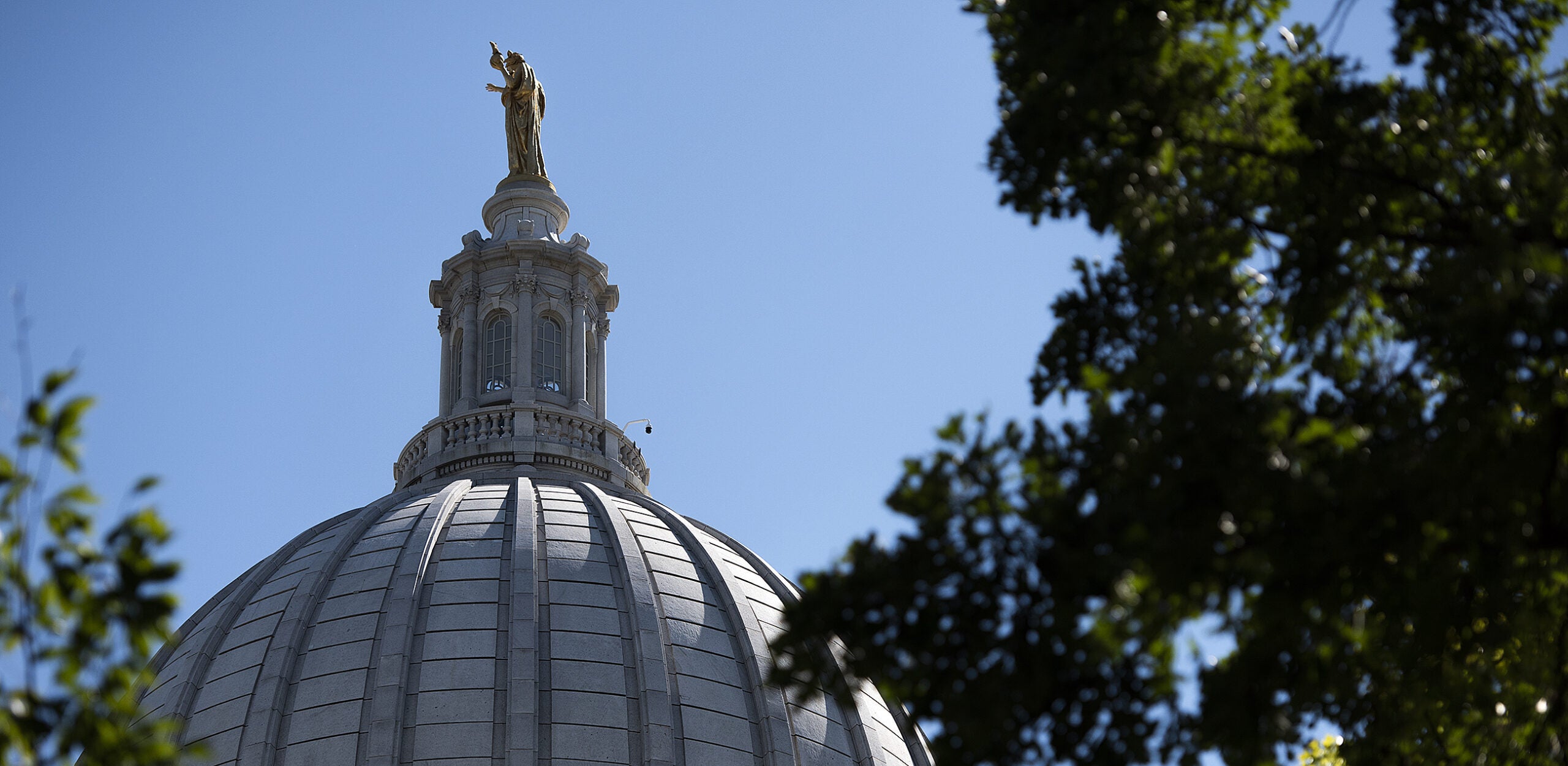A nonpartisan audit recommends Gov. Tony Evers’ administration should be more transparent about how it has distributed billions in federal COVID-19 relief funds and how it plans to spend nearly $2 billion of remaining money.
Wisconsin received a total of $5.7 billion in federal coronavirus aid between March 2020 and the end of June 2022, according to the Legislative Audit Bureau report, “Decisions About the Use of Supplemental Federal Funds.” Of that, $2.2 billion was distributed by Evers’ Department of Administration to other state agencies like the Department of Revenue, Department of Health Services, and Wisconsin Economic Development Corporation.
The audit bureau’s report states there are still $1.9 billion in remaining federal funds, which Evers’ administration indicated it has plans for using.
Stay informed on the latest news
Sign up for WPR’s email newsletter.
The bureau used Wisconsin’s internal accounting system to determine that funding went toward things like small business recovery grants, public health emergency supplies, local government recovery grants and programs that support the state’s tourism and farming industries.
Evers has unilateral discretion in how most of the federal funds are spent. In January 2022, Republicans in the state Senate passed a proposed constitutional amendment to require a legislative committee to approve a spending plan first. The amendment would sidestep a likely veto from Eves, but must pass two consecutive sessions of the Legislature and be approved by a statewide referendum before going into effect.
A letter from state auditor Joe Chrisman to members of the Legislature’s audit committee says the Department of Administration did not provide the audit bureau with information the agency and Evers’ office considered when deciding how to use $4.5 billion in discretionary federal funds.
“Providing clear and comprehensive information will allow legislators and the public to more readily identify how these funds are spent in the future,” Chrisman wrote.
Auditors sought funding requests, agendas and minutes of meetings, the report said.
“In response to our request, DOA provided us with publicly available information, such as press releases, links to state agency websites for the programs, and grant announcements for programs involving grants,” the report said. “DOA did not provide us with documentation of the process or the information DOA indicated it and the Governor’s office had considered in deciding to use discretionary funds for the nine state programs.”
The audit report offers recommendations for the Governor’s office, the Department of Administration and state lawmakers. They recommend the administration should document how decisions regarding the billions in discretionary funds were made and report to the Joint Legislative Audit Committee by Feb. 17. The bureau also recommended the information be included on the Badger Bounceback website.
Finally, the report suggests the Republican-controlled Legislature could modify state law to require the Department of Administration to report amounts of federal funds it receives, how they were spent and plans for funding particular state programs in the future.
In a letter responding to the auditors questions and recommendations, DOA Secretary Kathy Blumenfeld said the agency did provide memorandums of understanding between department and state agencies implementing funding decisions. The information was also submitted to the federal government.
“The critical need for both expediency and responsiveness in administering these funds so that the state could meet evolving needs both from a public health and economic perspective lent itself to decision-making that took place largely through near-daily conversations with the Governor’s Office and relevant agency partners,” Blumenfeld wrote.
The Republican co-chairs of the legislatures audit committee did not respond to requests for comment made by Wisconsin Public Radio Monday. A spokesperson for Gov. Evers’ office referred WPR to Blumenfeld’s letter.
State Sen. Tim Carpenter, D-Milwaukee, told WPR he looks forward to having a public forum on the audit bureau report, but noted the Republican controlled Legislature adjourned in April 2020.
“So, the legislature really didn’t do its job by being in session and working on some of those issues,” Carpenter said. “Or, even this past session, they had the audacity of adjourning on March 8 of this year and not working for the rest of the time.”
Carpenter said both the Legislature and the administration need to work with state agencies to ensure federal funds are wisely spent, “because it’s always easy to be a Monday morning quarterback.”
Wisconsin Public Radio, © Copyright 2025, Board of Regents of the University of Wisconsin System and Wisconsin Educational Communications Board.







